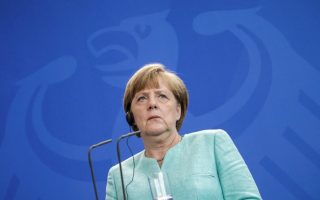A Brexit, but not because of the economy

The verdict of the British referendum on whether to remain in or leave the European Union will have a major impact on both the UK and the EU.
Though it is difficult to predict exactly how big this blow will be, we can speculate with precision that it will surely be greater than that to betting agencies and pollsters, which have been discredited.
Their predictions regarding yesterday’s ballot were way off the mark, even after the voting ended.
The truth is that the British, and particularly the English, were never wholehearted members of the European Union.
Sure, they joined the European Community in 1973 after nearly pleading for membership following the death of Charles de Gaulle, the French leader who had been against them joining the bloc.
However, once they were on course, they made sure not to get too close for comfort, by securing exceptions, keeping their own currency and staying out of the Schengen agreement.
In other words, they maintained their singularity by using, in every possible way, whatever global power they were left with following the demise of the British Empire.
This was also made possible because of Germany (chiefly) and France, which wanted Britain in the Union as opposed to outside, and, in their minds, against them.
The Brexit decision did not come about as the result of a financial crisis, tough bailout programs or the imposition of austerity measures. The United Kingdom was not facing such issues, and besides, the British economy had benefited from its accession to the European Community and the European Union.
Brexit was the result of the misguided decisions of British Prime Minister David Cameron, the mentality and provincialism of certain parts of the country’s population, fears of the country being inundated by (European) migrants, the insecurities and mind-set of older Britons, the power of populist nationalism and the position adopted by the media.
The referendum also turned into a challenge to the establishment.
Unfortunately, many of the aforementioned reasons, besides those regarding the economy, pose a deadly threat when it comes to the cohesion of the rest of the European Union.
While it remains to be seen how the remaining members of the bloc will react and what the future holds, what is certain is that nothing will ever be the same again.





